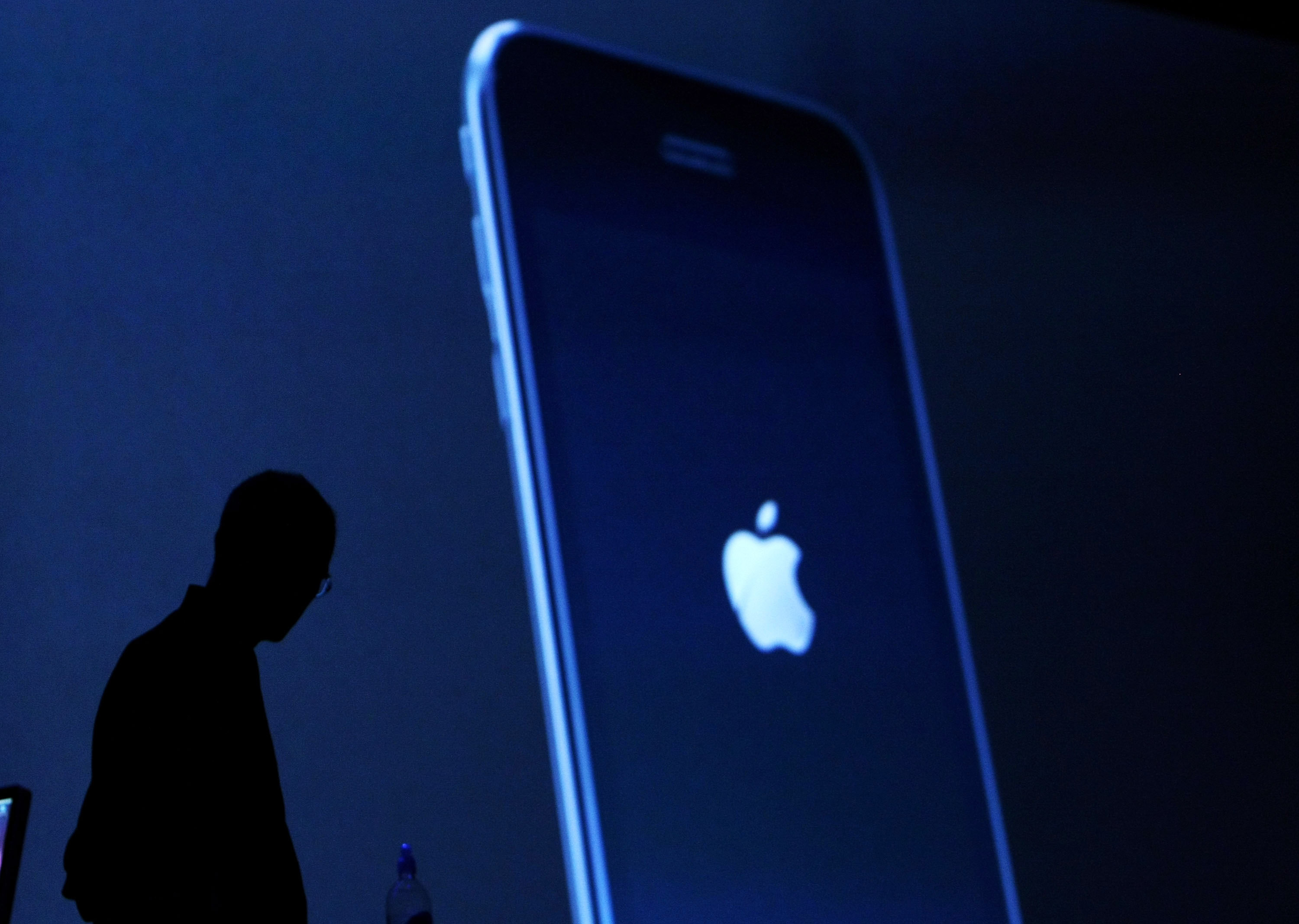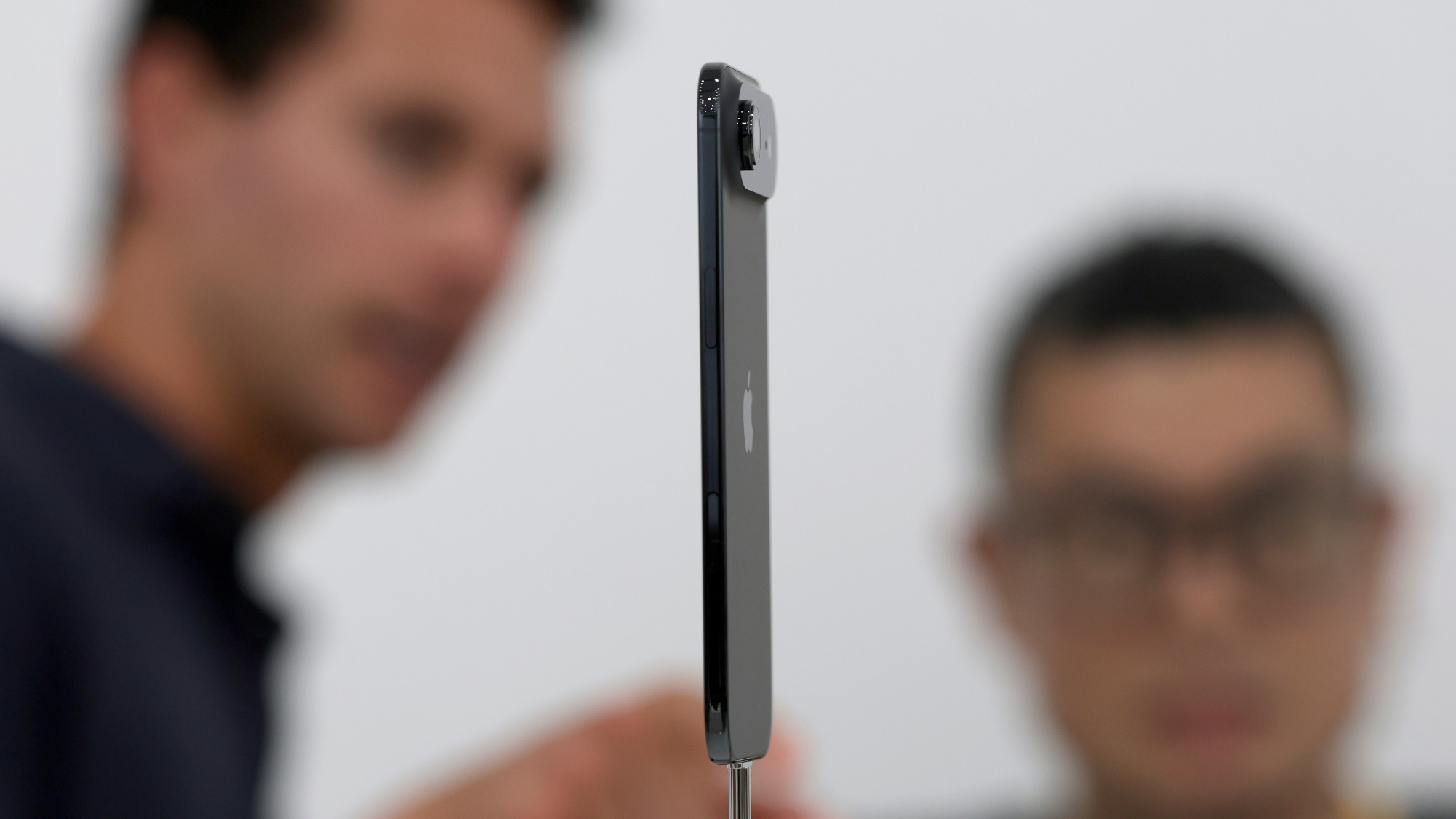Apple: Google ‘stoked fear’ over iPhone hacking report
Tech giant claims its rival withheld key information about recent security flaws

A free daily email with the biggest news stories of the day – and the best features from TheWeek.com
You are now subscribed
Your newsletter sign-up was successful
Apple has accused Google of scaremongering after the search giant last month revealed details of an iPhone hacking operation.
Researchers at Google’s Project Zero bug-hunting division found several major security flaws in January that exposed iPhone users to a potential malware attack.
Although Apple was alerted to the security flaws in February and subsequently fixed them, it claims that Project Zero’s public report on the matter skirted over fundamental details.
The Week
Escape your echo chamber. Get the facts behind the news, plus analysis from multiple perspectives.

Sign up for The Week's Free Newsletters
From our morning news briefing to a weekly Good News Newsletter, get the best of The Week delivered directly to your inbox.
From our morning news briefing to a weekly Good News Newsletter, get the best of The Week delivered directly to your inbox.
Google, meanwhile, says the research was accurate and intends to continue probing Apple products for security flaws.
What happened?
A couple of weeks ago, Google’s Project Zero team discovered “a small collection of websites” that were rigged with malware capable of stealing “a wealth” of personal information, including passwords and location data, reports Ars Technica.
Google claimed that iPhone users were vulnerable to an attack from a “zero-day” exploit - the term given to a security flaw that’s unknown to the software maker - for “at least two years”, the tech site notes.
A free daily email with the biggest news stories of the day – and the best features from TheWeek.com
It emerged that the attacks were targeted at the Uighur Muslim community in China’s Xinjiang region and that similar issues had affected Google’s Android mobile system, neither of which were revealed by the search firm, The Daily Telegraph says.
So why is this a problem for Apple?
With privacy and security being of particular interest to customers, tech companies are willing to pay millions of dollars to experts to dig up software flaws that could expose their devices to hackers.
Apple is no exception to this, with Vice reporting that the iPhone maker is willing to pay “friendly hackers” up to $1.5m (£1.2m) “in certain circumstances”.
However, Apple said in a statement that Project Zero’s research created “the false impression of ‘mass exploitation’ to ‘monitor the private activities of entire populations in real time’, stoking fear among all iPhone users that their devices had been compromised”.
It added: “The sophisticated attack was narrowly focused, not a broad-based exploit of iPhones ‘en masse’ as described. The attack affected fewer than a dozen websites that focus on content related to the Uighur community.”
Given that the Uighur community has been persecuted by the Chinese government for decades, Apple believes that Google stripped out certain details of the bugged websites to maintain its business relations with China, the BBC reports.
“All evidence indicates that these website attacks were only operational for a brief period, roughly two months, not ‘two years’ as Google implies,” added Apple. “We fixed the vulnerabilities in question in February – working extremely quickly to resolve the issue just 10 days after we learned about it.”
How did Google respond?
In spite of Apple’s damning response, Google stood by Project Zero’s report and vowed to continue its hunt for software bugs in its competitor’s devices.
“Project Zero posts technical research that is designed to advance the understanding of security vulnerabilities, which leads to better defensive strategies,” a Google spokesperson said.
“We stand by our in-depth research which was written to focus on the technical aspects of these vulnerabilities,” the spokesperson added. “We will continue to work with Apple and other leading companies to help keep people safe online.”
-
 5 blacked out cartoons about the Epstein file redactions
5 blacked out cartoons about the Epstein file redactionsCartoons Artists take on hidden identities, a censored presidential seal, and more
-
 How Democrats are turning DOJ lemons into partisan lemonade
How Democrats are turning DOJ lemons into partisan lemonadeTODAY’S BIG QUESTION As the Trump administration continues to try — and fail — at indicting its political enemies, Democratic lawmakers have begun seizing the moment for themselves
-
 ICE’s new targets post-Minnesota retreat
ICE’s new targets post-Minnesota retreatIn the Spotlight Several cities are reportedly on ICE’s list for immigration crackdowns
-
 Will AI kill the smartphone?
Will AI kill the smartphone?In The Spotlight OpenAI and Meta want to unseat the ‘Lennon and McCartney’ of the gadget era
-
 Has Google burst the Nvidia bubble?
Has Google burst the Nvidia bubble?Today’s Big Question The world’s most valuable company faces a challenge from Google, as companies eye up ‘more specialised’ and ‘less power-hungry’ alternatives
-
 Is Apple’s Tim Cook about to retire?
Is Apple’s Tim Cook about to retire?Today's Big Question A departure could come early next year
-
 How the online world relies on AWS cloud servers
How the online world relies on AWS cloud serversThe Explainer Chaos caused by Monday’s online outage shows that ‘when AWS sneezes, half the internet catches the flu’
-
 iPhone Air: Thinness comes at a high price
iPhone Air: Thinness comes at a high priceFeature Apple’s new iPhone is its thinnest yet but is it worth the higher price and weaker battery life?
-
 Is the UK government getting too close to Big Tech?
Is the UK government getting too close to Big Tech?Today’s Big Question US-UK tech pact, supported by Nvidia and OpenAI, is part of Silicon Valley drive to ‘lock in’ American AI with US allies
-
 Google: A monopoly past its prime?
Google: A monopoly past its prime?Feature Google’s antitrust case ends with a slap on the wrist as courts struggle to keep up with the tech industry’s rapid changes
-
 South Korea's divide over allowing Google Maps
South Korea's divide over allowing Google MapsTalking Points The country is one of few modern democracies where the app doesn't work